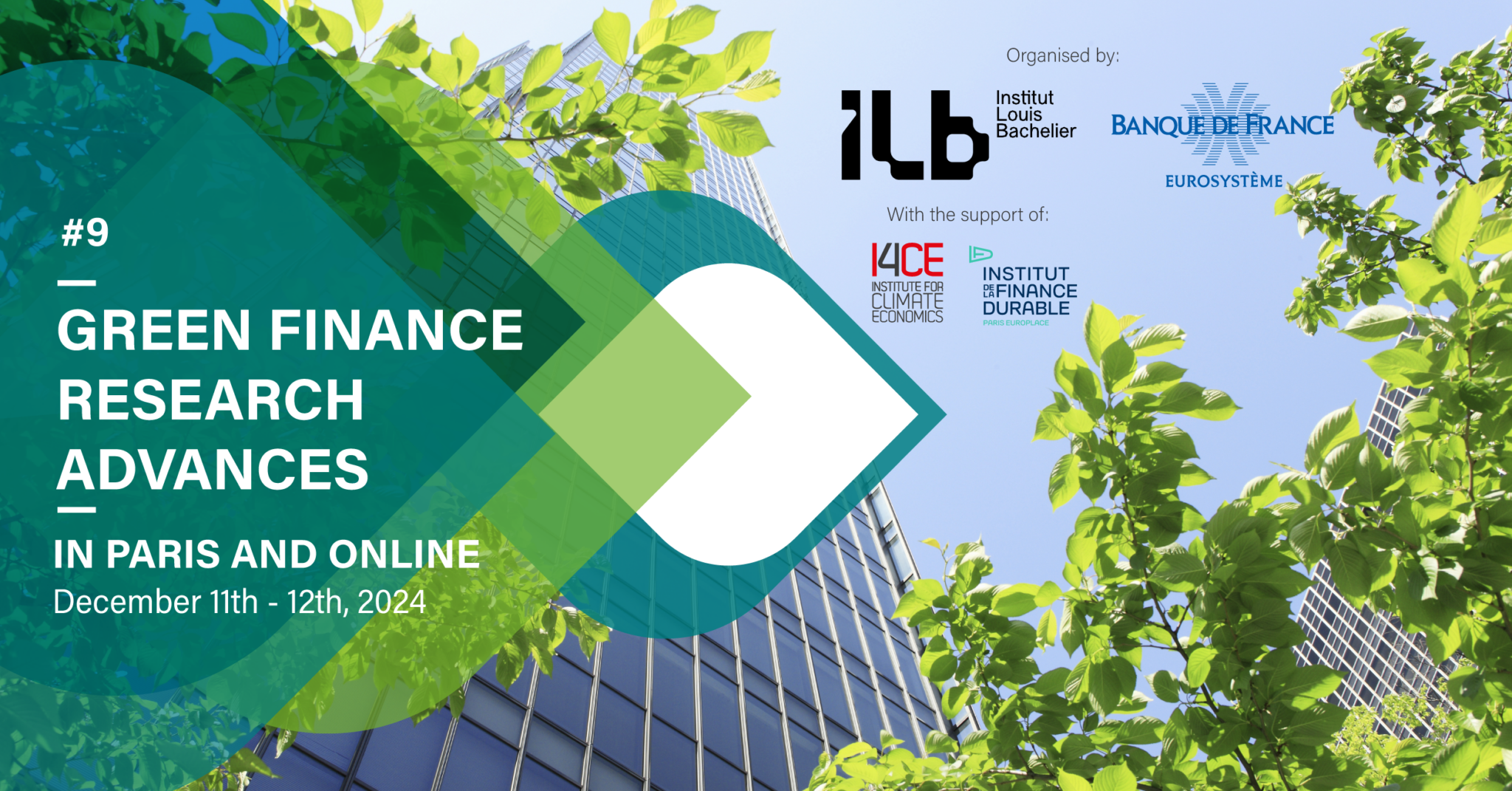Green Finance Research Advances (GFRA)

The Green Finance Research Advances (GFRA) is an international research conference for academics and professionals, co-organized by Institut Louis Bachelier and Banque de France, with the participation of the Institut de la Finance Durable and the Institute for Climate Economics -I4CE.
The objective of the conference is to bring together academics, finance practitioners and regulators, to discuss together research issues related to the integration of climate risks into macro-economic modelling/forecasting and into the risk assessment of the financial sector.
Programme:
- Day 1: Discussions around transition risks, banking stability in the face of climate risks, and strategies to avoid carbon lock-in. Green tax issues and the carbon commitments of financial institutions will also be explored.
- Day 2: Adaptation finance, the challenges of carbon markets and greenwashing will be at the centre of discussions, as well as the use of data and artificial intelligence for sustainable finance. The day will close with the presentation of the Banque de France prize for young researchers.
On 12 December 2024, Professor Riccardo Rebonato will present on the topic of “What is the Impact of Physical Climate Risk on Equity Valuation?”, exploring how physical climate risks, such as extreme weather events and long-term environmental changes, impact the financial valuation of equity markets.

Professor Rebonato will present findings from his recent paper, "How Does Climate Risk Affect Global Equity Valuations? A Novel Approach", which addresses the shortcomings of current climate-aware valuation methods and offers new insights. His research, supported by Scientific Beta, shows that climate risk can have a significant effect on global equity valuations, particularly in scenarios where climate action is insufficient. The study introduces a new framework combining asset pricing techniques with Integrated Assessment Models, offering a fully probabilistic treatment of climate and economic uncertainties, state-dependent discounting, and a thorough analysis of transition costs and physical damages.
To register, please visit the dedicated registration page.


